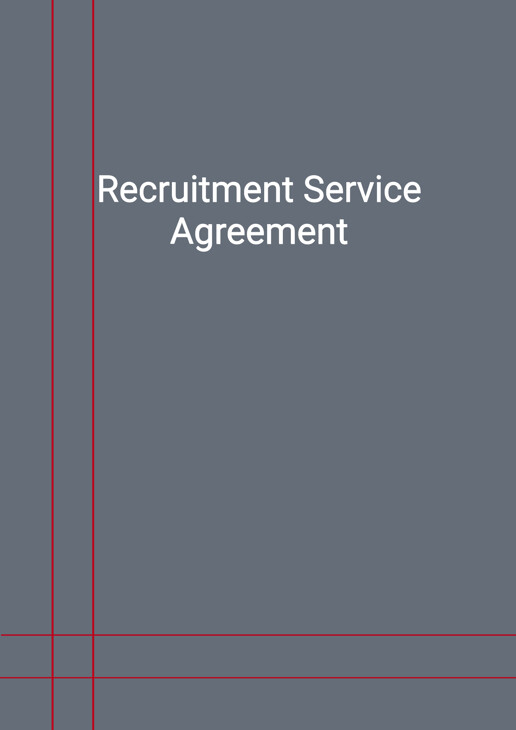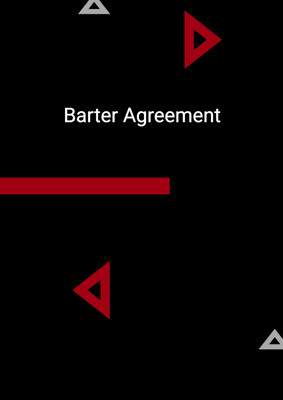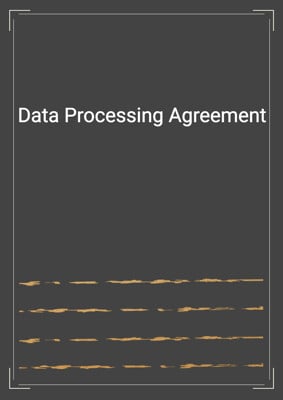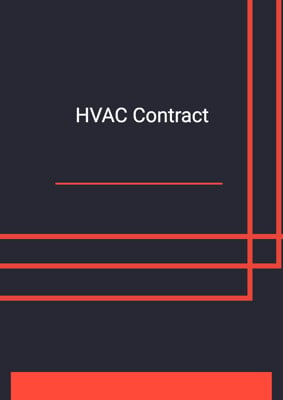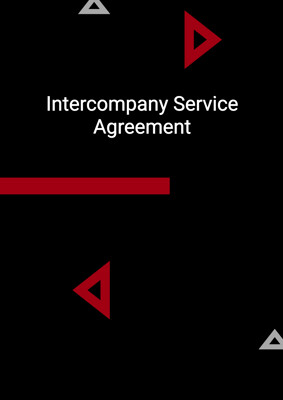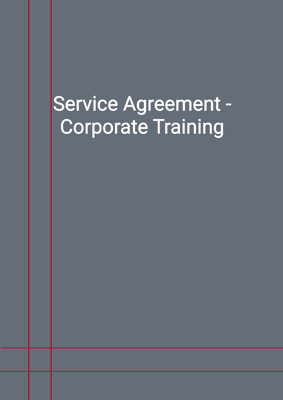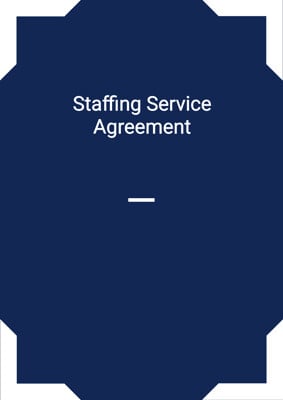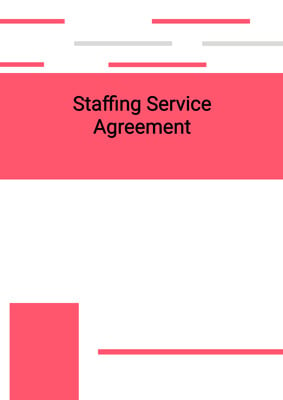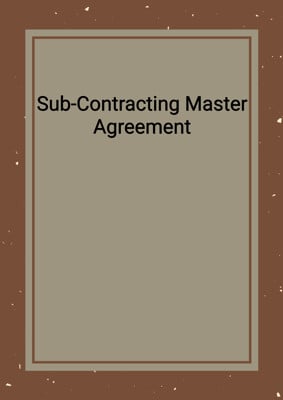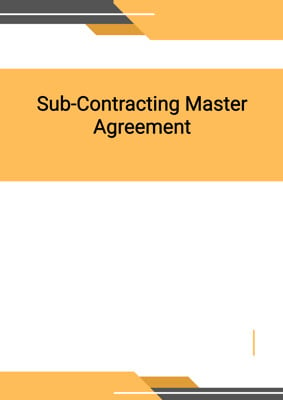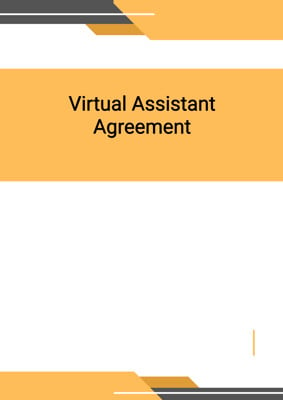How to Tailor the Document for Your Need?
01
Create Document
Fill in the details of the parties. You can click the "Fill with Member’s Information" button to complete it with information saved to your account.
02
Fill Information
Please fill in any additional information by following the step-by-step guide on the left hand side of the preview document and click the "Next" button.
03
Get Document
When you are done, click the "Get Document" button and you can download the document in Word or PDF format.
04
Review Document
Please get all parties to review the document carefully and make any final modifications to ensure that the details are correct before signing the document.
Document Preview
Document Description
The 'Recruitment Service Agreement' is a document that outlines the terms and conditions between a company (referred to as 'the Company') and a client (referred to as 'the Client') for the provision of recruitment services. The importance of this document lies in its ability to establish a clear understanding between the Company and the Client regarding the recruitment services to be provided.
The entire document is divided into several sections, each addressing specific aspects of the agreement. The first section is the 'Interpretation' section, which provides definitions for key terms used throughout the agreement. This ensures that both parties have a common understanding of the terms used.
The next section is the 'Company's Obligations' section, which outlines the responsibilities of the Company in providing the recruitment services. It emphasizes the Company's commitment to using its best efforts and complying with applicable laws and regulations. The section also highlights the Company's obligation to not discriminate against any candidate based on certain protected characteristics.
The 'Completion of the Work' section emphasizes the importance of timely completion of the services. It states that time is of the essence and that the Company must complete the services by the agreed-upon completion date. It also addresses the consequences of non-completion, including the entitlement of the Client to liquidated damages.
The 'Service Fees' section specifies the payment terms for the services. It outlines the different payment options, such as a fixed fee or a commission based on the annual salary of the hired candidates. It also addresses the invoicing process, late payment charges, and reimbursement of expenses incurred by the Company.
The 'Warranties and Indemnities' section highlights the Company's obligations to promptly notify the Client of any delays, problems, or complaints related to the services. It also addresses the Client's responsibility to report any defects in the Company's performance. The section emphasizes that the Company cannot guarantee the suitability of the candidates and that the Client accepts this limitation.
The 'Term and Termination' section specifies the duration of the agreement and the conditions under which either party can terminate it. It also addresses the consequences of termination, such as the return of properties owned by the Client and the payment of a fair and reasonable sum for completed services.
The 'Ownership of Materials' section clarifies that any intellectual property developed under the agreement becomes the property of the Client. It also restricts the Company from using the Client's intellectual property without written consent.
The 'Confidential Information' section imposes obligations on both parties to keep confidential any information disclosed during the agreement. It provides exceptions for information that becomes public, is disclosed by a third party, or is required by law to be disclosed.
The 'Announcements/Publicity' section requires prior written approval for any announcements or disclosures related to the agreement, except as required by law.
The 'Amendment' section states that any variations to the agreement must be in writing and signed by both parties. It clarifies that variations do not constitute a general waiver of any provisions and do not affect rights and obligations already accrued.
The 'Assignment' section prohibits the assignment or sub-contracting of the agreement without prior written consent from the other party.
The 'Severability' section addresses the invalidity or unenforceability of any provision and the parties' obligation to negotiate a valid substitute provision.
The 'Further Assurance' section requires the parties to perform any further acts or execute additional documents necessary to implement the agreement.
The 'Warranty of Capacity and Power' section includes representations and warranties from each party regarding their authority, power, and capacity to enter into and perform the agreement.
The 'Force Majeure' section states that none of the parties shall be liable for any failure or delay in performing their obligations under the agreement due to causes outside their reasonable control.
The 'No Rights under Contracts for Third Parties' section clarifies that third parties have no right to enforce any terms of the agreement.
The 'Arbitration and Proper Law' section encourages the parties to resolve disputes amicably and in good faith. It also provides for the proper law governing the agreement.
The 'Notices and Service' section specifies the methods and deemed times of giving notice between the parties.
The 'Counterparts' section allows the agreement to be executed in multiple counterparts, with each counterpart constituting an original document.
The 'Schedule 1' section provides details of the services to be provided by the Company, including the provision of accurate information about position requirements and the identification of candidates based on the Client's requirements.
How to use this document?
1. Provide information: Enter the Company's and Client's information in the agreement, including their principal place of business. This ensures that both parties are clearly identified.
2. Specify services: Clearly describe the recruitment services to be provided by the Company. Include details such as position requirements, job responsibilities, and terms and conditions of employment. This ensures that both parties are aware of the scope of work.
3. Agree on completion date: Set a completion date for the services. Ensure that both parties agree on the timeframe for completion to avoid any misunderstandings.
4. Specify service fees: Determine the payment terms for the services. Decide whether the fee will be a fixed amount per candidate employed or a commission based on the annual salary of each candidate. Clarify the invoicing process and any late payment charges.
5. Address warranties and indemnities: Establish the Company's obligations to promptly notify the Client of any delays, problems, or complaints related to the services. Specify the Client's responsibility to report any defects in the Company's performance. Clarify that the Company cannot guarantee the suitability of the candidates.
6. Define term and termination: Determine the duration of the agreement and the conditions under which either party can terminate it. Address the consequences of termination, such as the return of properties owned by the Client and the payment of a fair and reasonable sum for completed services.
7. Address ownership of materials: Clarify that any intellectual property developed under the agreement becomes the property of the Client. Restrict the Company from using the Client's intellectual property without written consent.
8. Maintain confidentiality: Impose obligations on both parties to keep confidential any information disclosed during the agreement. Provide exceptions for information that becomes public, is disclosed by a third party, or is required by law to be disclosed.
9. Obtain approval for announcements/publicity: Require prior written approval for any announcements or disclosures related to the agreement, except as required by law.
10. Ensure compliance with laws: Comply with all applicable laws and regulations, including those related to anti-bribery and corruption, and data protection.
11. Resolve disputes amicably: Use all reasonable endeavors to resolve any disputes amicably and in good faith. Consider arbitration as a means of dispute resolution.
12. Keep records of expenses: Keep an exact record of any expenses incurred while performing the services. Submit an invoice itemizing each expense, along with proof of purchase and receipt.
13. Review and negotiate variations: Any variations to the agreement must be in writing and signed by both parties. Ensure that variations do not constitute a general waiver of any provisions and do not affect rights and obligations already accrued.
14. Comply with termination procedures: Follow the termination procedures outlined in the agreement, including the return of properties owned by the Client and the payment of any outstanding balances.
15. Perform further acts if necessary: Perform any further acts or execute additional documents necessary to implement the agreement.
16. Seek legal advice if needed: If there are any uncertainties or complexities in the agreement, seek legal advice to ensure compliance with applicable laws and to protect the interests of both parties.
Not the right document?
Don’t worry, we have thousands of documents for you to choose from:
